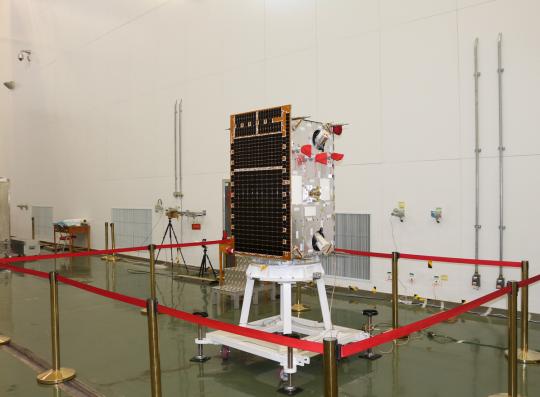
China's first satellite to conduct experiments on key technologies related to space-based gravitational wave detection, Taiji-1, has successfully completed its in-orbit tests, the Chinese Academy of Sciences (CAS) announced Wednesday.
The satellite, sent into orbit on Aug. 31, 2019, is China's first such kind of satellite, and has completed its in-orbit experiments, making a breakthrough in the country's gravitational wave detection, said Wu Yueliang, chief scientist of the project.
After four months of tests and experiments, it was proved that the satellite system has performed well in orbit and completed all the experiments required for research, Wu added.
With the success of Taiji-1's in-orbit tests, the first goal of CAS's three-step strategy to implement the program has been successfully achieved.
Taiji-1 will conduct more expansion experiments in the next stage, said Wu.





